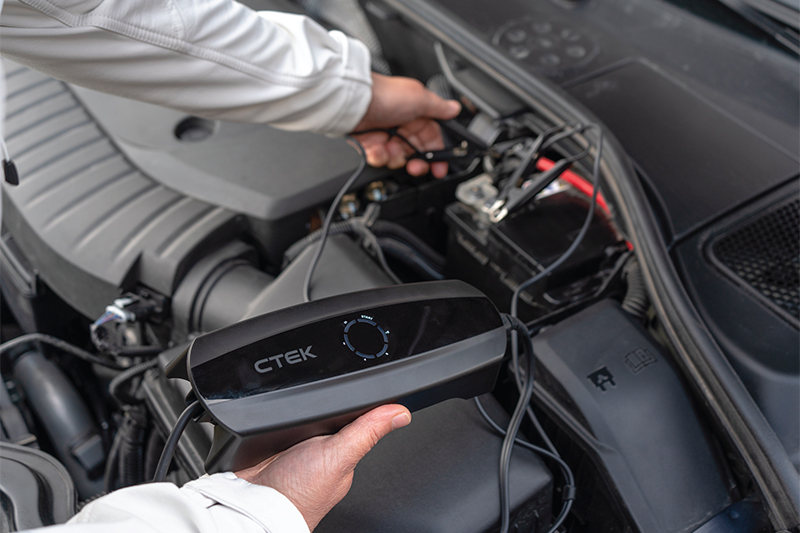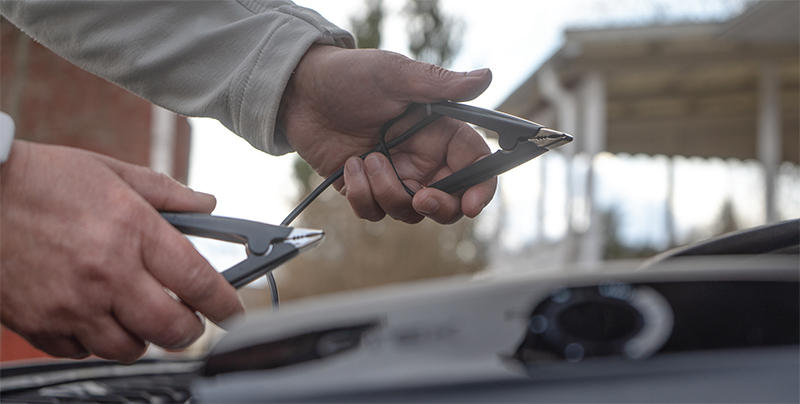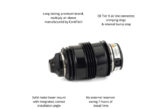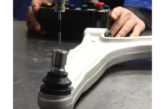
CTEK explores how the shift in driving habits has impacted the importance of battery support during diagnostics.
If we take a look at cars today, it could be said the majority of car owners are driving around in their most expensive computer. The demands on batteries have increased due to more sophisticated power hungry in-vehicle technology and systems, such as navigation and sound systems, heated seats, windows, steering wheels, entertainment and start/stop technology.
As a result of this increasing amount of onboard technology, the battery is being placed under greater strain than ever before. Battery capacities have not increased at the same rate as demand on load, therefore battery maintenance is now, more than ever, an essential requirement in minimising risk of premature battery failure. CTEK, the global brand in vehicle charging solutions, explains exactly why batteries need support.
Until fairly recently, a frequent cause of breakdowns was a flat tyre or a mechanical defect, however, recent research has shown that car battery failures have become the most common reason for an involuntary stop. The reasons for this are often consumer misconception that the battery is ‘under warranty’ and therefore easily replaceable, poor battery maintenance, or failure to replace the battery in good time.
Over the past decade, battery issues have become more and more common in vehicles entering the workshop. A six-week winter workshop trial undertaken by CTEK back in 2019, identified that as many as 50 per cent of vehicles arriving in the workshop have a battery requiring attention, either charging or replacing and that figure can only have increased since the Covid pandemic.
Now compounded by the recent increase in fuel prices and the overall cost of living crisis, many drivers are starting to think twice before hopping in the car, are maybe going out less often and, when they do, are taking shorter journeys. Coupled with the younger generation of drivers who have much more of a convenience-led lifestyle when it comes to driving, there is now a significant increase in vehicle and in particular battery health issues.

As we head towards the winter months we should also consider what happens to the battery when cold weather strikes. Battery performance can reduce by 35 per cent when temperatures hit freezing and fall by as much as 50 per cent if temperatures drop below zero, bringing car battery health in the workshop to the fore.
Driving habits have changed
CTEK’s six-week workshop trial identified a significant number of vehicle batteries in need of attention, and the state of batteries entering the workshop will only deteriorate over time. Technicians should always test the battery when a vehicle enters the workshop, it can often say so much quite quickly.
Ghost failures
Low battery voltage can also cause ghost failures. A vehicles’ Canbus system, the main communication channel between all the control modules, will start to shut down all the systems it doesn’t need when battery voltage is low, because its main priority is to ensure the engine keeps running – at all costs! So if a customer reports that the heated windscreen or the stop/start function isn’t working, test the battery first – it could save hours of unnecessary diagnostic work.
Always support the battery
When repairing a vehicle, testing electrical circuits, carrying out diagnostic procedures or flash programming the ECU, battery support is a vital activity often not fully appreciated for its importance.
The reprogramming of ECU modules and fault code diagnostics requires the ignition switched on without the engine running. This means that during programming, the vehicle’s systems are operated solely from the power of the battery. Maintaining battery charge is critical to avoid unnecessary down time, lost vehicle data or even damage to sensitive electronics. ‘Battery Support’ (as distinct from charging) is vital for the supply of ‘clean’ constant voltage for vehicle programming. It will also guard against loss of battery charge so protecting the battery from discharge when the work is complete and the vehicle is returned to the customer.
Should battery voltage alter significantly during reprogramming, the programme can fail – meaning a time consuming restart, or worse still, the ECU can be damaged beyond recovery, requiring expensive replacement.
Using equipment dedicated to battery support is now a necessity in any workshop. A battery performs best when it’s in peak condition, and by reducing the possibility of battery failure in the workshop, or even worse after the customer gets home, workshops are saving time, money and protecting reputation.
Customer service
Futureproofing technology in a modern workshop is essential, and that is just as important when looking after batteries as any other component in a vehicle. When a vehicle enters the workshop, oil and other fluid levels, tyre pressures and brake condition are all regularly checked and monitored. Workshops should consider offering the same level of service to their customers’ vehicle batteries – easily, safely and without disruption to usual workshop routines.
To make the most of this opportunity, the workshop needs to be equipped with an upto- date battery tester, ideally incorporating a printer facility. Complemented by a battery charger workshops can test, charge and condition a vehicle’s battery during other vehicle work, which is a chargeable service and an easy way to increase profit margins.









